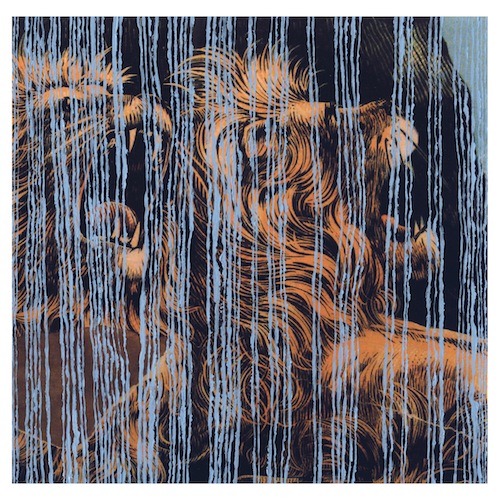As a human being, Julian Lynch very carefully balances two worlds. By day he’s a PhD candidate at the University of Wisconsin, Madison, delving into Anthropology and Ethnomusicology (an anthropologically minded discipline that studies music through its cultural, social, biological contexts rather than the sound of the music itself). Lynch’s own work within the field reportedly focuses on “musical practices in colonial and contemporary India.” And when he’s gotten a spare moment over the last several years he’s channeled his musical endeavors into a series of records under his own name for New Jersey-based label Underwater Peoples. It makes sense given Lynch’s divided attentions that his musical output would be similarly bifurcated. Dipping his feet into the streams of both acid-burned, woodwind-aided folk experimentalism and more traditional pop song structures, Lynch has spent two records playfully teasing out his own warped vision of pop music.
On both Mare and Terra, Lynch’s previous two home-recorded outings, Lynch splayed out nocturnal basslines and rambling percussion, hinting at the albums’ sepia toned aesthetics–an aspect mirrored in Lynch’s reverb coated croon and slack-stringed guitar effusions. These are half-remembered pop songs from years past thrown through a boreal echo chamber, a distant voice and chorus of clarinets rebounding through the trees. These more formal aspects of Lynch’s compositions remain unchanged on Lines, Lynch’s newest effort. But where previous works remained cloistered in the relative haze of their home-recorded bliss, Lines steps out into the open, sidling closer to traditional song structures and embracing a slight fidelity boost, one echoed in the crisper vocal production.
“Going” comes out of the gate like a schizophrenic Illinoise outtake, conjuring tension out of a wall of interloping woodwinds, masking, as ever, Lynch’s far-off vocals. But despite the ever-present fog, Lynch somehow seems more strident in his steps. Touches of digital manipulation warp the opening horn stabs before making way for Lynch’s grand vocal entry, and then a hush. Lynch’s not-quite-whisper ushers you through the serpentine twists the track takes without making itself the driver. But far from the cliché of acting simply acting as another instrument, Lynch’s voice is a north star of sorts, guiding and making sense of the often abstract instrumentation.
And it works similarly throughout, Charlie Brown Christmas chorales regale you through the acoustic guitar lilt and untuned tom rumble of “Carios Kelleyi I.” These are songs that feel familiar and potent, grounded, but the hooks are mumbled, muddled and otherwise obfuscated, cloaked in the grand details of the guitar harmonies and instrumental passages that mark the majority of the record. What results is big arrangements on a small scale. These are diverse and intense tracks though presented in the miniscule. No longer is Lynch comfortable simply in the nocturnal or the sepia-tone, he aims big here. These cuts are remain secluded, but not subdued.
“Gloves” probably illustrates Lynch most clearly in his new mode. Distant keys collide with a pointedly melodic bassline, and Lynch comes in with some horns for a brief, but catchy vocal segment. You still struggle to catch on to what exactly it is he’s saying, and he still doesn’t stick around long enough for the hooks to fully settle in. Lynch pops in, makes his presence felt, then dips out just as quickly, allowing space for some guitar harmonies to mark up the outro. He’s sitting on some solid songwriting, hooks that might make up the basis for a nice AM-radio rock record, but in his playful dalliances with woodwind fancy, or in the chaotic interlocking of his newfound instrumental boisterousness, Lynch never allows this new record to fully settle into anything comfortable or entirely familiar. With Lines, Lynch has managed to trudge on ever closer to the boundary separating the two worlds that he calls home, though at least for now he’s decidedly, satisfyingly settled on the side of the outré.

